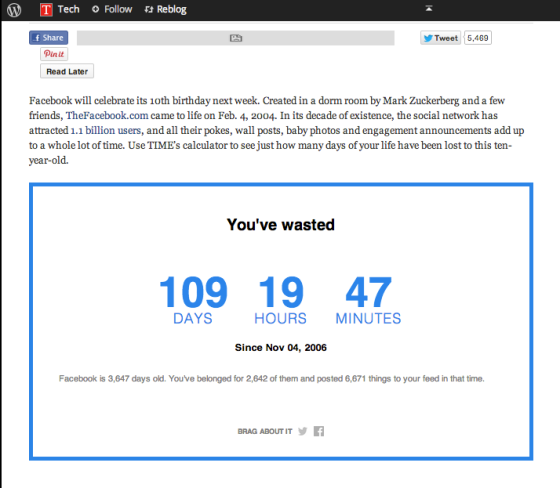
How Much Time Have You Wasted on Facebook?
I recently found this calculator on my Facebook newsfeed, ironically. It was brought to the attention of Time Magazine that individuals spend a lot of time on Facebook. Considering the discussions we had in class today, it made me think about central themes of alienation, isolation, and digitize forms of communication. Our culture appears to communicate more and more through digital technologies. Whether it is through our mobile phones or the computer, we remove ourselves from the stress of having to look into someone in the eye or ‘fake’ laugh to someone’s joke in an effort to avoid confrontation. It appears that people choose to use this synchronous/asynchronous form of communication to possibly avoid anxieties or social pressures.
That being said: it calculates the number of days, hours, minutes one spends on the social media platform. In addition, it calculates the number of things you posted on your page, timeline, wall, etc. When you think about it, an hour doesn’t seem like a lot, but when it is totalled together over the span of 4 years, the sum is remarkable.
It says the average person spends about 17 minutes on Facebook – this I don’t really believe. So, a friend and I decided to look into this differently. Approximately, we figured we spend about one hour a day on Facebook. This includes, Facebook Chat, surfing on the news feed, and “creeping” on photos/timeline. And this is my result… I’ve spent 109 days, 19 hours, and 47 minutes on Facebook. What is yours?
